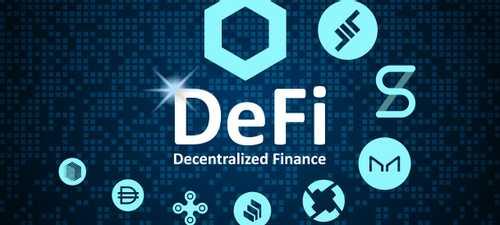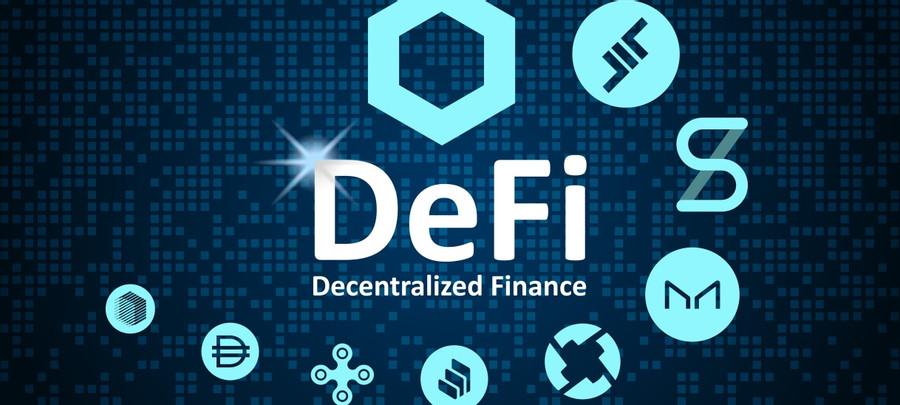Explore the World's Best Ideas
Join today and uncover 100+ curated journeys from 50+ topics. Unlock access to our mobile app with extensive features.
Borrowing
Qualifying for a loan in the first place is uncertain, usually requiring a high enough credit score and good debt-to-income ratio. Once approved, on average you can expect to pay 10%-30% in interest.
DeFi let’s you collateralize your crypto holdings in order to pull a loan against it.
For example, if you are holding $1,000 of bitcoin, a DeFi platform will let you pull out a loan on anywhere from 25%-75% of that balance. And this is all permissionless, meaning that no background check is required. What’s more, interest rate payments on DeFi loans range from only 1%-8%.
55
348 reads
Lending
With DeFi, you may also opt to lend your crypto and earn interest on it. Most DeFi platforms and decentralized exchanges (DEXs) have a staking mechanism or liquidity pool where you can lock your crypto into the platform and earn interest. Lending helps DeFi platforms to continue facilitating transactions through increased liquidity.
Interest earnings within DeFi are surprisingly high, ranging anywhere from 5%-400%+ in yearly earnings. Comparatively, centralized banks usually offer interest rates as high as .07% yearly on savings accounts. It’s clear why DeFi is becoming so popular.
55
273 reads
Yield farming
Lending mechanisms on DeFi platforms have opened up the practice of yield farming, which is where crypto holders routinely seek the highest interest rates on the market to earn passive income.
52
289 reads
Smart contracts
So how is all of this facilitated on decentralized platforms? Through the use of smart contracts, DeFi platforms are able to process transactions without the need of a middleman or centralized entity holding funds in custody and keeping track of ledgers. Instead, crypto traders lock tokens into liquidity pools and smart contracts use this liquidity to mint new tokens and facilitate transactions.
53
242 reads
History of DeFi
From smart contracts, a blockchain project called Maker was able to create a stablecoin known as DAI. And with DAI, holders of ethereum were able to collateralize their tokens in exchange for the stablecoin.
Another big innovation that Ethereum enabled were ICOs.
While the ICO craze led to many scams, there were a handful of great projects that survived the 2017 bubble. Most notably, in terms of DeFi, was AAVE, which is now one of the most popular DeFi platforms to-date. AAVE is an open-source DeFi protocol that allows borrowing and earning interest on collateralized tokens.
53
192 reads
The future of DeFi
DeFi saw huge growth in the middle of 2020 but declined a bit later in the year. Despite drops in the token value of popular DeFi projects, their usage and development continued well into 2021. Now, many are speculating a “DeFi Summer 2.0” as the Ethereum blockchain is slated to release an important upgrade in July 2021.
The new upgrade, EIP-1559, is expected to help lower gas fees substantially. What’s more, mainstream adoption is steadily on the rise with the popularity of NFTs , the recent Coinbase listing, and the surge in the price of Dogecoin.
52
198 reads
IDEAS CURATED BY
Decebal Dobrica's ideas are part of this journey:
Learn more about crypto with this collection
How to create a diversified portfolio
How to analyze stocks and bonds
Understanding the basics of investing
Related collections
Similar ideas
3 ideas
Everything you need to know About DeFi Loans
101blockchains.com
5 ideas
What Are Liquidity Pools in DeFi and How Do They Work? | Binance Academy
academy.binance.com
5 ideas
4 DeFi Cryptos to Watch in 2022
fool.com
Read & Learn
20x Faster
without
deepstash
with
deepstash
with
deepstash
Personalized microlearning
—
100+ Learning Journeys
—
Access to 200,000+ ideas
—
Access to the mobile app
—
Unlimited idea saving
—
—
Unlimited history
—
—
Unlimited listening to ideas
—
—
Downloading & offline access
—
—
Supercharge your mind with one idea per day
Enter your email and spend 1 minute every day to learn something new.
I agree to receive email updates


